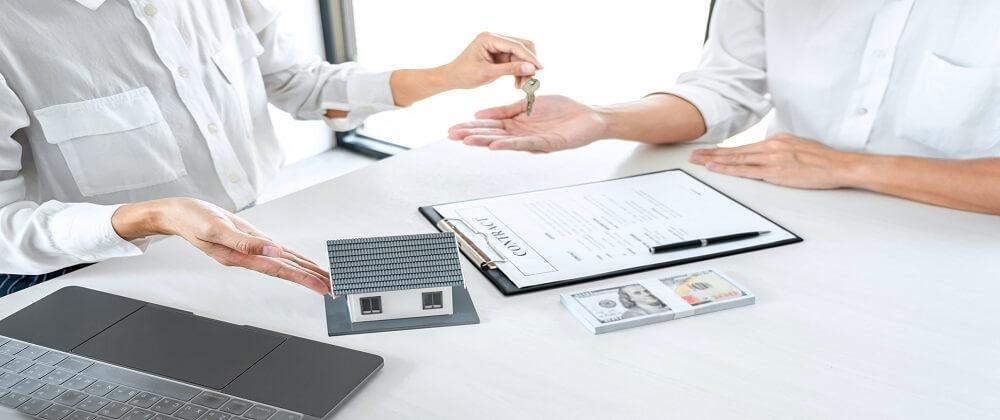
Security Deposits: What You Need to Know Before Signing a Lease
By: ROS Team
A security deposit is a sum of money collected by a landlord from a tenant at the beginning of a tenancy. The purpose of a security deposit is to protect the landlord from potential damages to the property or unpaid rent at the end of the lease.
It is important for renters to understand the terms and conditions of the security deposit before signing a lease. Security deposit laws vary by state, and it is crucial for renters to know their rights and the proper protocol for handling security deposits.
This blog post will cover the basics of security deposits and what renters should know before signing a lease.
How Do Security Deposits work?
Security deposits are typically a set amount of money, often equivalent to one or two months’ rent that a landlord will collect from a tenant at the start of the tenancy.
The deposit serves as a form of collateral for the landlord in case the tenant causes damages to the property or fails to pay rent.
1. When the Deposit is Collected:
The security deposit is usually collected when the lease is signed or when the tenant moves into the property. Landlords are allowed to keep the deposit during the tenancy but must hold onto it in a trust or escrow account.
2. How the Deposit is Returned:
At the end of the tenancy, after the tenant vacates the property. The landlord is responsible for inspecting the property and determining whether any damages have been caused that would justify deductions from the security deposit.
If there is no damage or unpaid rent, the landlord is obligated to return the deposit, less any lawful deductions, within a certain period, as stipulated by state laws.
3. State Laws and Regulations Regarding Security Deposits:
Each state has its own laws and regulations governing security deposits. These laws typically specify how much a landlord can charge for a deposit, how it must be held (e.g., in a trust account). How much notice a landlord must give before making deductions from the deposit?
Landlords should be aware of these laws and ensure they comply with them. Renters should also familiarize themselves with the rules so they know their rights.
Purpose of Security Deposits
The primary purpose of a security deposit is to cover damages to the rental property that are caused by the tenant during the tenancy. This includes damages beyond normal wear and tear, such as holes in walls, broken windows, or stains on carpets.

The deposit also serves as a safety net for landlords in case the tenant fails to pay rent.
The deposit can also be used for cleaning and other miscellaneous charges if the rental unit is left in a dirty or disordered state upon move-out.
It’s important to note that a landlord can only make deductions from a security deposit for the specific purposes outlined in the lease agreement or as per state laws.
Landlords cannot use the deposit to cover their own costs, such as routine property maintenance. And cannot charge for damages that existed prior to move-in it is also considered illegal if a landlord fails to return the deposit or any remaining portion of it to the tenant when they are supposed to.
Tips for Getting Your Security Deposit Back

Document the Condition of the Property Before Move-in
Before you move into the rental unit, it’s a good idea to document the condition of the property, including any existing damages. You can do this by taking pictures or videos and making a written record. This will provide evidence of the property’s condition in case there is a dispute about damages at the end of the tenancy.
Keep Records of Rent Payments
Make sure to keep records of all rent payments, including receipts, canceled checks, or bank statements. This will help to ensure that there are no disputes about unpaid rent when you move out.
Clean the Property Thoroughly Before Move-out
Before you move out, make sure to clean the rental unit thoroughly, including appliances and floors. So that it is in the same condition as when you moved in, minus normal wear and tear. This will help to increase your chances of getting your deposit back in full.
Understand the Lease and any Addendums
Be sure to read and understand the lease agreement, including any addendums, before you sign it. This will help you to know your rights and responsibilities regarding the security deposit, and will give you an idea of what to expect when you move out.
Seek Legal Help if Necessary
If you feel that your landlord has improperly withheld all or part of your security deposit, it’s important to seek legal help. Your state may have laws that protect renters in these situations, and a lawyer can help you to understand your rights and options.
Security Deposit Before Signing a Lease: Final Thoughts
In conclusion, security deposits are an important part of the renting process, serving as a safeguard for landlords against potential damages or unpaid rent.
However, it is crucial for renters to understand the terms and conditions of the security deposit before signing a lease.
By following the tips outlined in this post, such as documenting the property’s condition, keeping records of rent payments, cleaning the unit thoroughly before move-out, understanding the lease, and seeking legal help if necessary, renters can increase their chances of getting their security deposit back in full.
It’s also important to be aware of the laws and regulations specific to your state to ensure that your landlord is following the proper protocol and knows your rights. Remember security deposit is your money, and it should be returned to you as long as you fulfill your obligations as a tenant.








